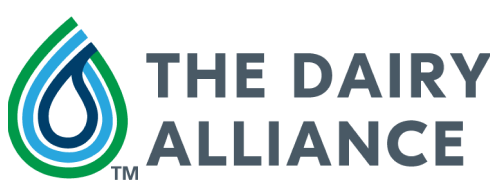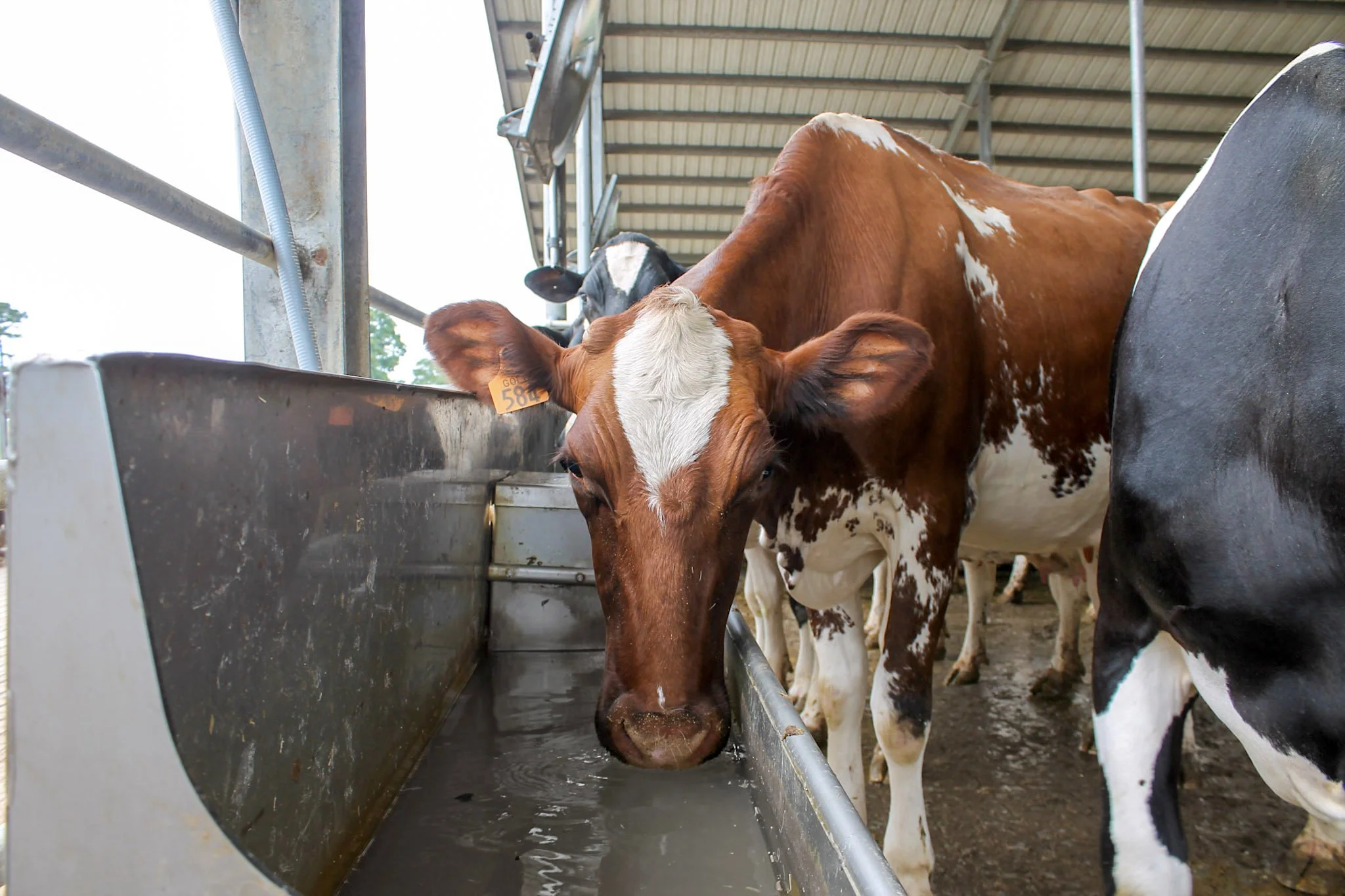Animal Care Practices in the Dairy Barn
Animal care is an important aspect of dairy farming across the Southeast. There are a variety of practices implemented on local dairy farms. These practices range from installing cow brushes that rotate when triggered by an itchy cow’s back to providing regular hood trimming and veterinary checks. Other animal care practices on the dairy farm include grouping cows according to their age (and friendships), formulating diets to match a cow’s unique nutritional requirements, and tracking data through modern farm tech to care for the cows at the first sign of a potential issue.
Whether it is housing cows in a bedded barn or installing waterbeds for a soft place to nap, dairy farmers are committed to keeping their cows happy and comfortable. Comfortable cows produce more milk, so not only is good animal care the right thing to do, but cow care also makes financial sense for the dairy farm family to keep on farming.
Cave Hill Dairy
Cave Hill Dairy in Troutville, Virginia, houses part of the milking herd in a bedded pack barn. This type of barn provides open space with no individual stalls and is bedded with wood shavings or sawdust which compost in place. The barn has a high roofline, side curtains that can be opened, and overhead fans to encourage better airflow. Cows at Cave Hill Dairy who have recently given birth or are older members of the herd stay in the pack barn. This setup has reduced problems with cows’ feet and legs and improved the herd’s longevity.
White Rock Farms
Cows at White Rock Farms in Peachland, North Carolina, wear an activity tracking collar that collects information about their activity, rumination, and other metrics. The information is used to help make management decisions about cow health, breeding, and feed. For example, a sudden decrease in activity might mean the cow is sick and we can check her before she even shows any physical signs of illness. This technology is an important tool in keeping cows comfortable and helps us more efficiently meet their needs.
Glocrest Dairy
Glocrest Dairy in Clermont, Georgia, gives their cows the best care possible in their freestall barn for the cows to relax and lay down in their own waterbeds. The freestall barn gives the cows total access to food and water and each cow has her own space to utilize the waterbeds in the barn. The cows also have a large brush that they can use to get a good scratch when they need it!
And when it is time to go to work, comfort is still a top priority. The milking parlor has padded rubber floor mats to be as comfortable and clean as possible for the cows while they are being milked.
Keeping the cows as comfortable as possible is important to keep them healthy and low-stress. Healthy, happy cows produce more high-quality milk for the farm to process at Mountain Fresh Creamery, the farm’s own creamery that makes and sells milk and ice cream.
Compton Dairy
At Compton Dairy in Fairplay, Kentucky, the Compton family takes great pride in cow comfort. The Comptons attach large brushes around the barn that will give their cows a nice scratch when they need it the most! Cows simply press against the brush to activate it. The brushes have many benefits for the cows besides reaching an itch on their backs! The brushes positively impact performance, milk yield, stress reduction, blood circulation, udder health, and even play a role in mastitis reduction. And of course, the cows love a good human scratcher as well.








